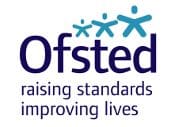
The recent focus on pupils knowing the content of subjects has given rise to some interesting observations from OFSTED. In one of the most recently published reports on a primary school, which was carried out remotely in Spring 2020, they made the following observations, which I include verbatim.
“Development work in subjects in the wider curriculum, such as geography and history, is ongoing. Curriculum plans for these subjects show what pupils should learn by the end of each year. Because of delays to the academisation process and the impact of COVID-19, you have not yet established a system to check that pupils have learned and remembered the most important content in these subjects. This means teachers do not always know whether pupils are ready to move on to the next stage of learning.”
It is the last sentence that worries me. It makes it seem as if pupils who haven’t learned certain facts about Ancient Egypt they cannot then progress to study Romans in Britain. This is a nonsense! Which schools will be laying on catch-up classes on the Egyptian Second Kingdom! Or the changing role of the Pharaoh? Even if they did, would it not be at the expense of the next topic? Don’t OFSTED realise that time for the foundation subjects is restricted and that there is already a lot to get through. What devices did they have in mind for checking content knowledge anyway? Are they thinking of substantive knowledge about people and events from the past or the disciplinary knowledge about historians work?
This important distinction is one that OFSTED makes in its recent review of research into history teaching in July 2021. In reality, it is easier to test substantive knowledge and fiendishly difficult to test disciplinary knowledge. So what will happen: short tests on content? And suddenly here we are again in Michael Gove’s vision of a 1950s prep school.
Don’t be bullied into this when you know its not right! And there is an alternative, for which see:
Common assessment tasks in history at KS1
and
Common assessment tasks in history at Key Stage 2



